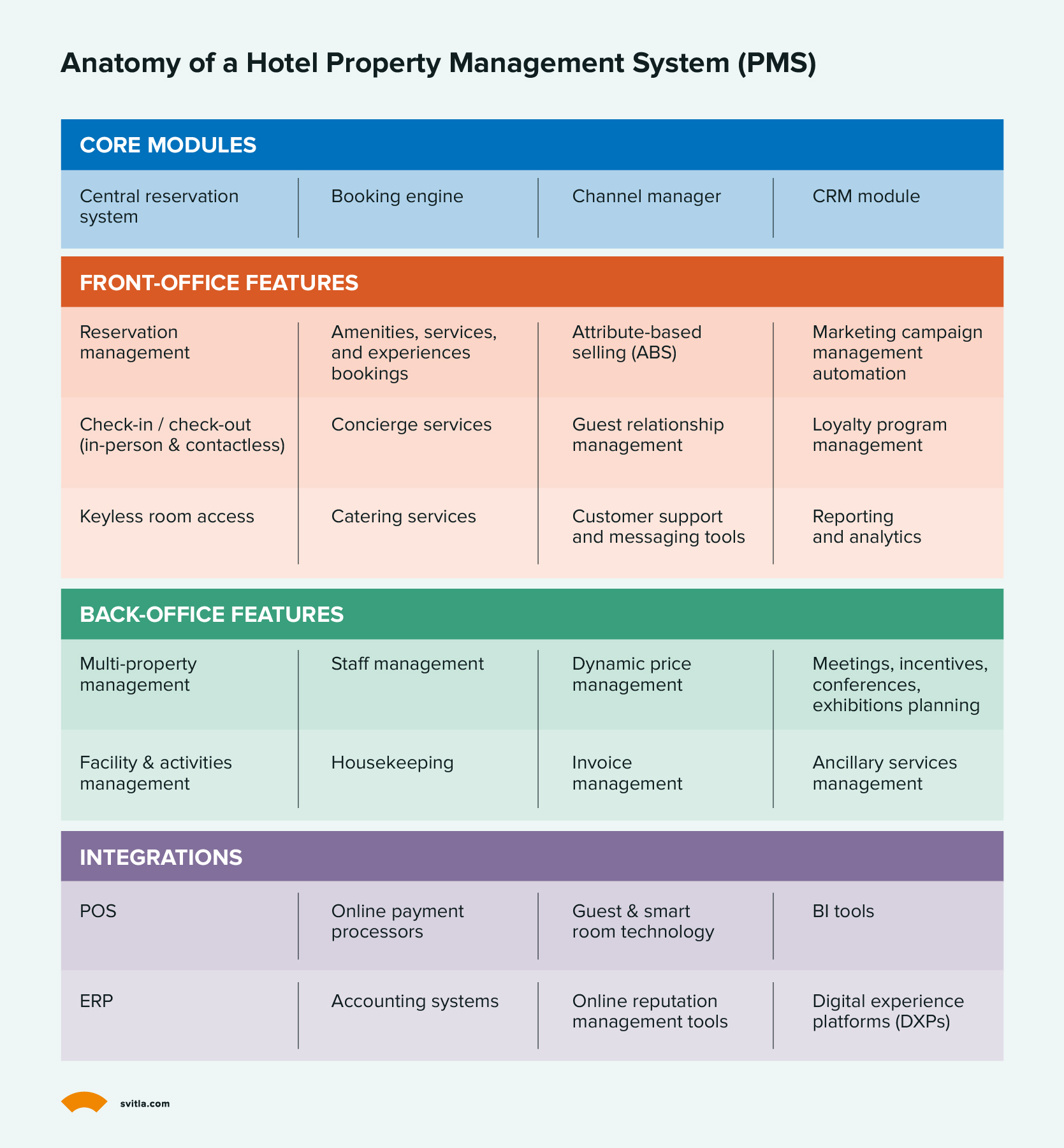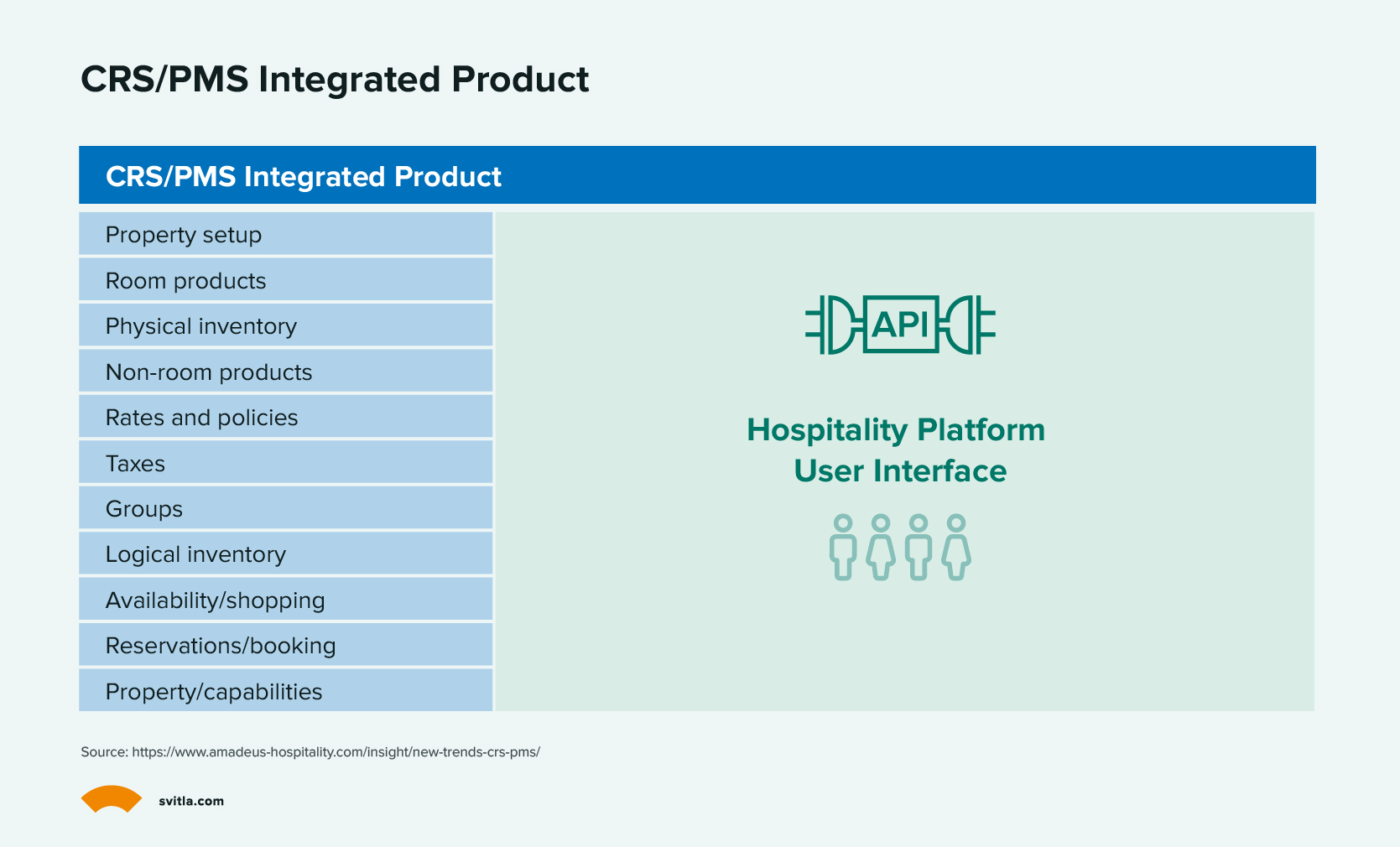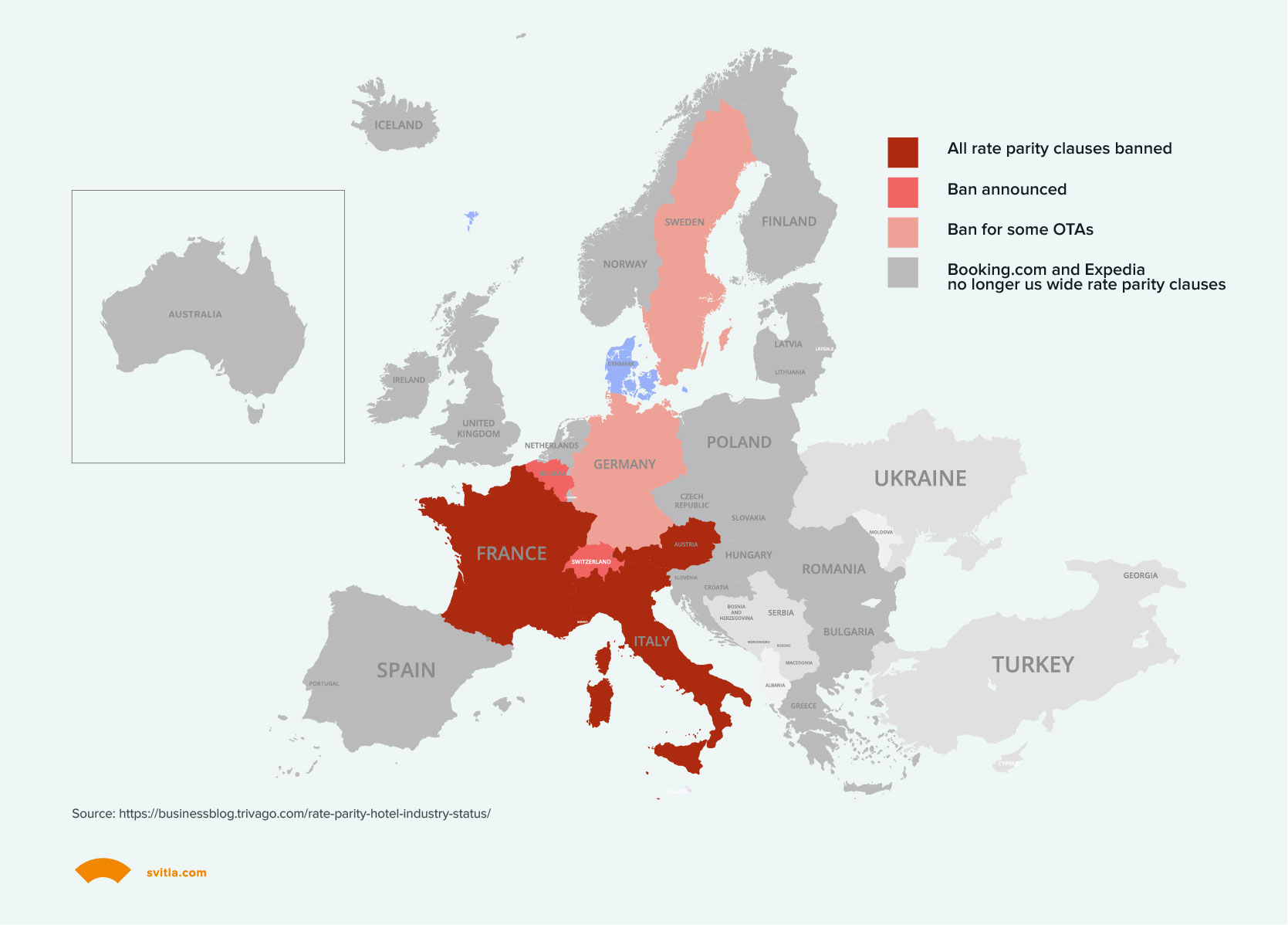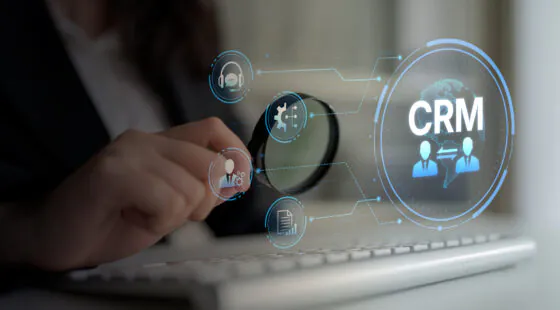The modern hotel business relies on keeping customers happy and using the latest technology. A hotel's bottom line is directly tied to customer satisfaction. According to the research, digital tools can help a lot with that – around 70% of hotel managers say so.
Hotel management software also helps automate many processes and makes operations more efficient. Now hoteliers can handle reservations, housekeeping, front desk work, and more through one integrated system.
Looking at market growth, there's increasing demand for this hotel property management software type. Analysts predict the market will hit close to $6 billion by 2031. Hotels that invest in new hospitality tech systems can lower expenses and improve the customer experience. Upgrading to an automated system seems crucial for hotels wanting to streamline operations and satisfy guests in today's market.
This article explores the benefits of a property management system, its types, and the essential features. Let’s dive in.
What is a Property Management System?
Property management systems (PMS) are software used in hospitality to manage hotel operations, including reservations, check-in/out, billing, and rates. Modern PMS have expanded beyond front desk functions to enable hotels to deliver superior guest experiences and streamline business processes property-wide.
Hotel management platforms have come a long way from their first iterations in the 1970s. But as Cloudbeds CEO Adam Harris commented to Skift, hotels today continue to lag in adopting technology. Harris explained, “The average percentage of spending on technology in the hotel industry is a fraction of what it should be.” He said resistance to change, not competition, is the primary barrier to adoption.
With cloud-based PMS, everything from major hotel chains to hostels can now view booking status, control reservations, manage back-end processes, and track key metrics. Yet many hotel owners and managers remain fearful of leaving behind legacy systems or disrupting existing workflows. By harnessing the capabilities of modern platforms, however, hotels of all sizes stand to gain operational efficiencies and deliver better guest experiences.
Types of Property Management Systems
Hotel property management software can be broadly categorized into two deployment and licensing scenarios. Let’s take a look at each option.
By Deployment Scenario: On-premises vs Cloud-Based PMS
An on-premises PMS is hosted locally in your data center. This means your IT team is fully responsible for ensuring the system’s high performance, availability, and security. The advantage of on-premises PMS is more opportunities for customization and performance fine-tuning. The downsides are higher maintenance costs.
Cloud property management software is hosted externally with a cloud services provider (CSP). You can opt for a public cloud service such as Amazon Web Services (AWS) or Microsoft Azure or set up a more secure private cloud, which assumes isolated control and exclusive usage of supplied computing resources.
Cloud-hosted PMS is more scalable and can be easily deployed across multiple properties. Moreover, cloud-native PMS are easier to integrate with other business systems e.g., point-of-sales, online payment processors, online travel agencies (OTAs,) and more, giving you extra operational flexibility.
By Licensing Type: Proprietary vs Custom PMS
A proprietary PMS (also known as off-the-shelf PMS) is commercial software developed, maintained, and licensed by a vendor (software developer). A license or subscription plan grants access to all the product's pre-made functionality. Commercial cloud-based POS systems also include application hosting and pre-made connectors to other business systems (e.g., payment processors or popular CRM tools).
The flip side of getting many features out of the box is limited customization. You cannot access its source code to add custom features or modifications, or distribute any extra software copies beyond the number authorized by your license.
A custom hotel property management system is designed and developed for an organization. It's a bespoke product that matches your company’s needs and workforce requirements. You retain full ownership of the intellectual property. You can decide on further product development – add extra features as your business grows, sell some modules to other companies, or embed extra offers from partners to delight your guests with extra upsells.
Proprietary Property Management System: Pros and Cons
The global property management software market is already worth $3 billion.
Much of this growth is generated by software-as-a-service (SaaS) vendors, offering subscription-based access to property management tools. Some traditional players with on-premises products still maintain a fair market share. In other words, you have many good options to grab off the virtual shelf, but most of these come with inherent content.
Pros
- Managed deployment. If you opt for a cloud PMS, hosting, security, maintenance, and updates depend on the vendor size. Likewise, there are no software installations involved, your team gets instant access to all features via web or mobile apps.
- Extensive support. Most vendors provide step-by-step onboarding, user training, ongoing tech troubleshooting, and round-the-clock customer support. You'll get quick assistance if SLAs back a product issue.
- In-built data protection. The best property management systems fully comply with global privacy regulations and provide comprehensive data collection, payment processing, and storage security controls.
- Access to innovation. All the latest features and product updates are instantly available with a cloud PMS. However, you can’t control the vendor’s product development roadmap. Hence, not all product updates may be helpful for your business.
- Fair price point. Most cloud PMS are competitively priced and accessible to hospitality businesses of every size. You can always start with the cheapest plan and basic feature selection and upgrade later.
Cons
- Limited scalability. You pay per user (seat) or revenue processed with SaaS software. So the total cost of ownership (TCO) can increase dramatically as your business evolves, while the obtained value of the product stays the same.
- Vendor-lock in. Fully relying on an external vendor increases the risks of losing competitiveness over time if the vendor’s product development stalls or even the entire software if the company goes bust.
- Integration issues.Over 90% of hoteliers rank the ability to “integrate with different technologies to create a “command and control center” as an essential feature of their PMS. Yet, new PMS vendors often have limited native integrations, while legacy PMS can’t be well integrated with more modern software.
- Limited customization. Since vendors restrict access to source code, you can’t adapt the products' interfaces or add extra features your teams need to do their best work.
Because of the above disadvantages, many hospitality businesses invest in building a custom property management system.
Custom Property Management System Software: Pros and Cons
A 2023 Lodging Technology Study by Hospitality Technology found that 69% of hoteliers plan to add, upgrade, or switch their property management systems suppliers sometime this year. The reasons are ample: ballooning maintenance costs, limited flexibility, and missing capabilities.
Marriott International, for example, plans to increase its tech budget by $150 million this year to re-platform its significant systems and invest in new technology infrastructure. The team expects to improve employee and customer experiences and boost revenue with new technology investments.
Choosing a custom PMS has several advantages and a couple of possible downsides to keep in mind.
Pros
- Extensibility. It's no secret that accessing PMS data is challenging because the core hotel systems lack well-defined application programming interfaces (APIs) and interoperability standards. As a result, the hospitality tech market is entirely of fundamentally incompatible systems and the need for customized integrations, which proprietary vendors don’t support. A custom PMS, in turn, can be architected to keep different data exchange standards and have secure, native integrations with other business systems. For example, Svitla recently helped a PMS vendor add several new integrations with end-user CRMs, reservation, and billing systems.
- Scalability. A custom PMS comes with no caps on the maximum number of supported users, properties, or distribution channels. With a scalable, microservices-based architecture, you can easily add extra functionality without hindering the performance of other business modules to accommodate new guest management features, distribute partner-supplied offers, or seamlessly enter new markets with localized campaigns.
- Full software ownership. Shape your product development roadmap based on first-hand business user and guest feedback. Move faster than your competition by deploying new competitive features for guest self-check-in, integrated travel experiences booking, or on-demand room personalization.
- New revenue channels. Tap into new pockets of growth through digital-led partnerships with other brands. Sell access to available hotel amenities to day guests via OTAs or upsell new travel experiences to your guests through local travel vendors or partnerships with event management companies. For example, we helped our client develop a custom PMS, which now incorporates over 70 different subsidiaries and brands.
Cons
- High initial investment. Custom PMS development requires an ample initial budget. However, owned software generates proven ROI through higher operational efficiencies, cost optimization, and revenue enablement. Furthermore, it increases your company's intrinsic value from the investors' perspective.
- Ongoing maintenance. You’ll need an in-house or an external team to handle IT infrastructure and continuous product development. The advantage, however, is that with the optimal platform design and adequate cloud cost controls, you can maintain a lean TCO even as your user base grows.
Essential Features of Property Management System
Back then, a hotel management system was a fancier version of an Excel spreadsheet. It offered an interface for assigning rooms, tracking guest arrivals, and sometimes – issuing invoices.
In contrast, modern software does much more than baseline inventory planning. Functions of property management system include many front-desk and back-office process management features, from self-check-in and keyless room access to dynamic pricing optimization tools and attribute-based selling.
Effectively, hotels are moving away from relying on standalone systems for reservation, channel, and revenue management to developing unified, cloud-native property management systems with custom functionality.

Central Reservation System
A central reservation system (CRS) distributes data about availability, rates, and inventory to systems that consume it, such as a booking engine and channel management module.
Traditionally, hotels opted for separate CRS and PMS solutions. CRS handled ARI data distribution across channels and a PMS that helped streamline on-premises management tasks like check-in, guest management, and more.
Such fragmentation, however, wasn’t ideal. Often, hotels end up with duplicate data across systems due to data sync issues or manual input errors. These discrepancies in ARI data across systems directly impacted revenue. At present, hotel leaders converge the two systems into one unified platform with a shared database.
2 in 10 hotel leaders question the necessity of having a separate CRS since modern PMS offers convenient reservation and booking data storage modules. – h2c's Global Hospitality Distribution Study
Using a unified PMS/CRS system, rather than two standalone solutions, has multiple benefits:
- Data standardization
- Real-time ARI visibility
- Faster account reconciliation
- Error elimination
- Extra guest intelligence
- Dynamic rate optimization

With a unified setup, every operational data becomes fully accessible through your PMS. Moreover, ARI data can be securely shared with other submodules or third-party systems through application programming interfaces (APIs).
Our team suggested a similar convergence approach for the new PMS for our client – a global software provider for the hotel, retail, food service, and entertainment industries. With a fully integrated network of IT solutions, our client can support hundreds of clients globally without experiencing system performance issues and quickly deploy new competitive product features.
Booking Engine
With an integrated booking engine, hotels can process guest reservations via their website, mobile app, or social media properties. The booking engine receives ARI data from the PMS and dispatches the confirmation to the guest. Direct bookings don’t come with a hefty commission tag, plus allow hotels to capture guest data, which you can leverage to personalize pre-stay communication, on-site guest management, and future marketing efforts.
The more exciting hotel booking engine feature, however, is attribute-based selling (ABS).
Instead of pitching a standard roaster of “budget”, “deluxe,” and “premium”, empower guests to choose the preferred amenities – be it a standing desk or a walk-in shower – a la carte.
An NYU SPS Jonathan M. Tisch Center of Hospitality study found that most travelers (85%) are concerned that the booked room will not contain the essential features. In comparison, ABS-based booking experiences increase guest satisfaction and hotel profits. Over 60% of travelers who pay $250 or more per night and 48% of those who pay $150-$250 per night are willing to pay extra for preferred room features with ABS.
Based on the selected room features, an ABS booking engine will generate a custom price for the stay and then ensure the availability of the selected room configuration. Apart from marketing room features, hotels can also upsell various amenities and activities to the guests. These can be displayed as stand-alone offers or bundled into custom offers based on previous guest purchases.
InterContinental Hotels Group (IHG) is one of the biggest proponents of ABS. The chain completed detailed inventory assessments of 95% of its properties in mid-2022 and began a phased rollout of an ABS-based solution. This strategic tech investment allowed IHG to recover room rates to pre-pandemic levels, with the amount IHG could charge per available room going up each quarter throughout 2022.
However, the common roadblock to ABS implementation is the limitations of legacy systems (CRS in particular). Most were not designed to include custom, granular attributes for rooms, only categorizing the available inventory by one parameter (e.g., king-size bed). You cannot mark the same room as “king bed with city view” or “king bed with a kitchenette”. That’s another factor in favor of modernizing your CRS before considering other features of hotel management systems.
Channel Manager
Channel manager software connects hotels to multiple distribution partners, online travel agencies (OTAs), metasearch engines, global distribution systems (GDS), and wholesalers. Its goal is to help you sell most of your inventory at the right price to hit the target RevPar benchmark.
When done correctly, multichannel distribution helps maximize occupancy rates and revenue yield. But when misconfigured, you lose profits to expensive OTAs or get hooked into unfavorable rate parity clauses (which may not even apply in a particular market).

Other challenges with subpar channel management software include:
- Overbooking due to unsynchronized data and staff errors
- Caps on the number of simultaneously manageable channels
- Over-reliances on high commission channels, resulting in profit erosion
- Interoperability issues due to different data exchange standards
- Inability to add custom restrictions on room distribution (e.g., minimum required stay)
- Lack of support for attribute-based selling
With a custom PMS, you can implement a channel management module that best supports your inventory management strategies and doesn’t limit your ability to add new channel partners.
For example, Marriott recently launched the Channel Connectivity Program for its Homes & Villas division. Property management companies and channel managers can use a dedicated API to directly integrate with Marriott's systems to promote their premium home rentals to Marriott Bonvoy members. With the new system, Marriott gained more exclusive properties to its growing collection. At the same time, its partners received access to customer data and analytics-driven listing tools for optimizing property presentation and marketing.
Revenue Manager
Revenue management software helps hotels determine the right price for different hotel rooms, using demand forecasting, customer analytics, and supply data. Its goal is to replace the guesswork for factors like price, channel, and timing with data insights to help your hotel maximize profitability.
Most revenue management systems include tools for:
- Customer segmentation
- Demand forecasting
- Yield management
- Pricing optimization
And many of these today are powered by advanced data analytics and machine learning (ML).
Unlike legacy rule-based revenue management systems, ML solutions can model up to 100 million sales-related decisions across an extensive portfolio of properties. In particular, you can get insights on:
- Which channels perform best for different customer segments
- Regional demand trends and customer behaviors
- Price rates at which each room gets sold across channels
- Seasonality trends across channels
- Booking patterns for each room category
Prescriptive revenue management solutions can also issue suggestions on optimizing the prices or channel allocations to secure a target lift in sales. For example, you can dynamically optimize rates based on the analyzed data to maximize occupancy rates.
Kevin Hof, Data Scientist at RoomPriceGenie, shared an interesting case from the Swiss hospitality industry. A small hotel group featuring nine properties generated a 22% increase in revenue and a 4% average increase in average daily rates after adopting a dynamic price optimization tool.
CRM Module
Customer relationship management (CRM) software enables hotels to consolidate customer data and manage guest relationships across multiple touchpoints more effectively.
CRM systems are widely used in many industries, but the hospitality industry lags.
Only 20% of hotels worldwide, representing an estimated 32% of hotel-room supply, currently use CRM tools to manage guest interactions better, a Skift 2023 Research Hotel Tech Benchmark found.
That’s a significant oversight as guests come to expect personalized service levels. For 78% of travelers, “high-quality service” is the top criterion for selecting a hotel. Apart from basic staff courtesy, guests also expect a greater selection of tailored services, from a personalized welcome package to curated selections of activities.
The challenge for hotels, however, is effectively capturing and acting upon those requests – and that’s where CRM software comes in. A CRM module helps collect data on customer behaviors, ranging from basics like “special requests” and loyalty status to more advanced insights on average spending, amenity preferences, and price sensitivity.
By channeling relevant data points from your CRS, booking engine, POS, PMS, and social media into a CRM solution, you can get a 360-degree view of each customer and devise strategies for hyper-personalizing your marketing, upsell, and cross-sell campaigns. On average, personalization can drive up to a 10%–15% revenue lift, driven by the company’s ability to execute.
Hotels often struggle to implement effective personalization programs due to a lack of necessary data. Or more precisely – inability to obtain it.
Valuable customer insights are often siloed across multiple business systems (CRS, POS, etc) and communication channels (email, social media, chatbots). CRM software helps consolidate this intel and ensure its automatic acquisition from multiple channels. Moreover, a CRM module can help you procure even more valuable insights.
Take it from Virgin Hotels. The chain launched Lucy – a dedicated guest app facilitating contactless check-in, dining reservations, and managing room service. The app provides Virgin Hotel with ample customer behavior data, which the company can use to create differentiated guest experiences.
You can launch segmented campaigns to engage past guests with targeted offers using the obtained data. After consolidating its guest data, S Hotels & Resorts, for example, launched a series of property-level campaigns for different customer segments, bringing an average of $26,000 in revenue and over $710,000 in direct sales over 6 months.
In short, the CRM module can help automate guest data collection and automate various marketing activities, from email campaigns to in-app upsells. It also allows hoteliers to launch new membership and loyalty programs to improve customer retention and revenue yields.
For example, our team has helped The Rainmaker Group (now a Cendyn company) launch a new eLoyalty platform, powered by first-party customer data and advanced personalization tools. The solution enables hotels to create bespoke guest portals for rewarding loyal members with unique offers, special rates, and custom rewards to improve conversions and cultivate long-term relationships.
PMS Integrations
The four core systems are the building blocks of modern PMS solutions and power the must-have product features.
That said, not all PMS features have to be native. For instance, there’s no point in developing a custom payment processor when competitively-priced options are available off the shelf. Likewise, few hotels invest in custom accounting tools or digital experience management platforms.
The growth of cloud-based, API-driven PMS architectures now enables hotels to select best-of-breed tools for their technical portfolio.
With open APIs, developers gain access to data and the business logic of third-party systems and can create streamlined product usage experiences. For example, your PMS can include native CRS and revenue management modules but use a third-party CRM solution that seamlessly integrates with the said systems.
Jos Schaap, CEO at Roomdex, sums it up: “The total effectiveness of each piece of software interacting with one another is greater together than when acting in isolation from one another”.
Third-party systems also provide additional customer and operational data, which can be effectively channeled into your PMS to receive more detailed analytics.
To Conclude
In conclusion, adopting a robust PMS is crucial for the success of modern hotels aiming to enhance customer satisfaction and streamline operations. As the hospitality industry evolves, embracing the latest technology becomes imperative.
Two main categories of PMS include deployment scenarios (on-premises vs. cloud-based) and licensing types (proprietary vs. custom). Each option presents its advantages and disadvantages, catering to diverse needs within the industry.
Proprietary PMS offers managed deployment, extensive support, data protection, and access to innovation but comes with limitations such as scalability issues, vendor lock-in, integration challenges, and limited customization. On the other hand, custom PMS provides extensibility, scalability, full software ownership, and the potential for new revenue channels. However, it requires a higher initial investment and ongoing maintenance.
A modern PMS includes a central reservation system (CRS) for data distribution, a booking engine, and a channel manager for efficient distribution across various platforms. It also includes a revenue manager for optimizing pricing strategies, a CRM module for personalized guest interactions, and seamless PMS integrations.
Svitla Systems is a tech partner to global businesses seeking to place technology at the core of their operations. Contact us to get a personalized consultation on PMS development.





